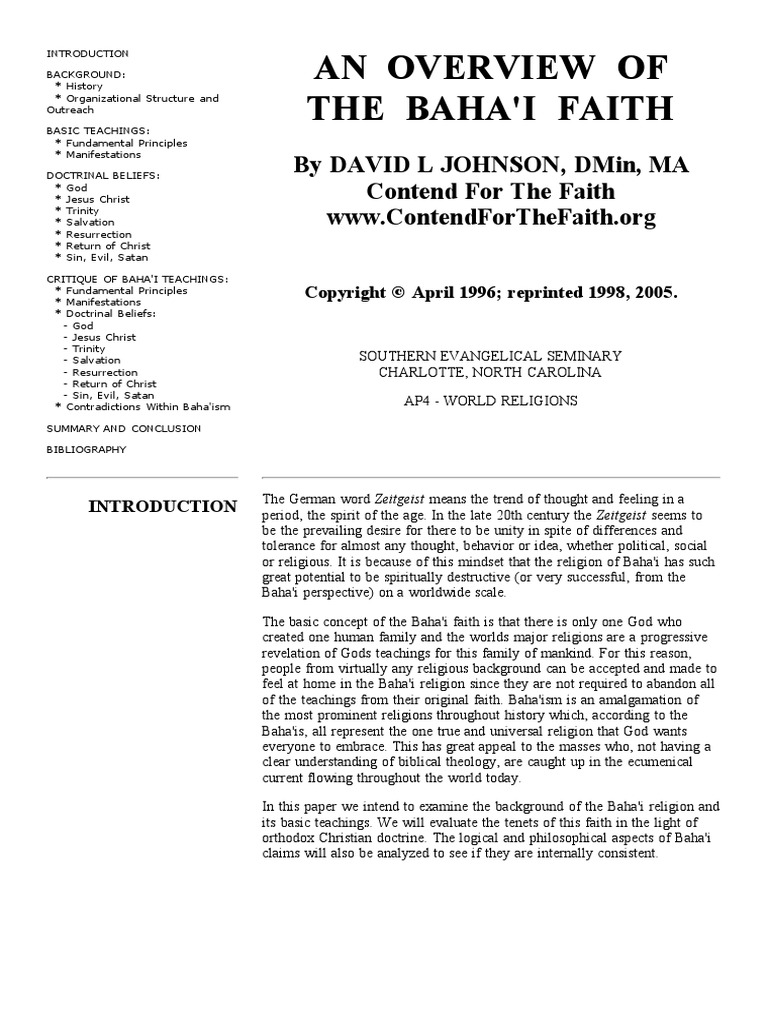In the dramatic tapestry of humanity’s spiritual evolution, the teachings of Bahá’u’lláh emerge as a profound catalyst, inviting adherents toward a transformative journey. Declaring one’s faith in Bahá’u’lláh transcends mere acknowledgment; it embodies a comprehensive commitment to living in accordance with divine principles that advocate unity, justice, and the perpetual quest for truth. This exploration delves deeply into the nuanced layers of what it means to declare faith in Bahá’u’lláh, emphasizing not only the personal ramifications but also the broader societal implications discovered through this journey.
At the heart of Bahá’í teachings lies the imperative of recognition and acceptance of Bahá’u’lláh’s divine station. The very act of declaring faith ignites a pivotal transformation in perspective—one that reframes the individual’s understanding of purpose and existence. When one chooses to embrace Bahá’u’lláh’s teachings, it prompts an introspection that extends beyond self. This metamorphosis involves acknowledging the interconnectedness of all life and fostering a sense of profound responsibility toward others.
This initial declaration is often accompanied by a unique sense of liberation. Individuals find themselves unshackling from the confines of traditional doctrines that may have constrained their spiritual exploration. In doing so, they experience an awakening—a realization that their spiritual journey is a personal odyssey, rather than a rigid adherence to dogma. This newfound perspective engenders courage; the courage to explore, question, and grow.
Yet, the journey toward declaring faith in Bahá’u’lláh is not without its challenges. Doubts and fears often loom large as individuals grapple with the enormity of the commitment they contemplate. It is essential to recognize that embracing faith is an iterative process. This journey is characterized by moments of uncertainty, where the heart and mind engage in a dialogue that ultimately leads to clarity. Both the Báb, Bahá’u’lláh’s forerunner, and Bahá’u’lláh himself emphasized the significance of personal investigation into truth. Hence, the quest for understanding becomes a fundamental aspect of one’s spiritual progression.
As one delves deeper into the teachings of Bahá’u’lláh, the notion of unity emerges as a cornerstone. The Bahá’í Faith advocates for the oneness of humanity, positing that all individuals, regardless of background or belief, are interconnected. Declaring faith entails a commitment to this principle, a recognition that the divisions humanity imposes—the separations based on race, religion, or nationality—are artificial and detrimental to collective progress. This radical shift in perspective cultivates empathy and compassion, compelling believers to foster harmony and understanding within their communities.
Moreover, the declaration of faith underscores the significance of justice as a divine attribute that must be reflected in human endeavors. Bahá’u’lláh calls upon his followers to advocate for social justice, equality, and the eradication of prejudice. Such an engagement fosters a profound responsibility among adherents to champion the rights of others, engendering a spirit of service that reaches far beyond the self. This commitment to justice is not merely a moral obligation; it is seen as integral to the believer’s relationship with the Divine and their role in the cosmos.
The transformative nature of faith declaration also encompasses the realm of personal relationships. As individuals embrace Bahá’u’lláh’s teachings, they are often called to examine their interactions with friends, family, and acquaintances through a lens imbued with the principles of love and kindness. This perspective piques the curiosity, encouraging individuals to consider how their actions impact the larger tapestry of human relationships. In an increasingly fragmented world, the Bahá’í model of love and fellowship offers a refreshing alternative, igniting a desire for deeper connections rooted in mutual respect and understanding.
Furthermore, declaring faith involves an ongoing exploration of one’s relationship with the Divine. The Bahá’í teachings encourage individuals to develop a personal relationship with God, facilitating a dialogue that allows for growth and transformation. This dynamic engagement fosters an atmosphere of inquiry and introspection, which can lead to profound revelations about the self and one’s place within the universe. The promise of this personal journey is not simply in the acquisition of faith, but in the unfurling of the soul, gaining insight and wisdom that echoes throughout one’s life.
The impact of such a declaration is not confined to the individual experience; the communal aspect of the Bahá’í Faith highlights the significance of collective engagement. Communities of believers can unite, sharing their journeys and insights, thereby enriching one another’s paths. This collaborative spirit engenders a sense of belonging and shared purpose, allowing individuals to support each other in their quest for understanding and fulfillment. In nurturing this communal bond, believers can collectively strive toward shared goals, highlighting the interplay between individual actions and communal outcomes.
In conclusion, declaring faith in Bahá’u’lláh serves as a catalyst for an expansive personal and collective journey. This voyage redefines individual purpose, fosters profound interpersonal connections, and propels believers toward a greater understanding of their role within the human family. As followers of Bahá’u’lláh engage with the teachings, they are invited to embrace not only their own transformation but to contribute to the evolution of humanity itself. The journey is rife with challenges, yet it promises the profound rewards of love, unity, and a more harmonious existence—a legacy rooted in the timeless wisdom of Bahá’u’lláh. As each individual navigates this path, they embody the essence of the Bahá’í teachings, casting a radiant beacon of hope and understanding into a world yearning for healing and connection.
